The Navy Junior Reserve Officer Training Corps (NJROTC) Program at PAHS can be often misunderstood, with its true purpose and value overpowered by various misconceptions: never-ending pushups, rigid discipline, and mandatory military service. According to a recent survey of 19 students currently enrolled in PAHS’s NJROTC program, 84% agreed that their peers held inaccurate stereotypes about the program and its students. This misjudgment contributes to a stigma that can undermine the diverse opportunities and skills that students get to experience in the program.
Debunking Myths: What NJROTC Is and Isn’t
Myth 1: You Have to Enlist in the Military After Joining NJROTC
Many respondents of the survey agreed that the biggest misconception of NJROTC is that students are required to join the military if they enroll in the program. Lieutenant Commander Jason Houser, the Senior Naval Science instructor for NJROTC, clarifies that “joining NJROTC does not mean you’re committing to the military. Our program is designed to prepare students for life—whether that involves military service, college, or another path.” While the program has a military-like structure, and some cadets pursue careers in the military, NJROTC also offers non-military-related advantages such as leadership, physical fitness, and social development skills. Sophomore Penelope Channell adds “while we do have lessons relevant to the Navy, the instructors are there to push you to succeed in your present and future, regardless if you want to join the military.”
Myth 2: It’s Like a Boot Camp
NJROTC may be thought of as an overly strict environment where students are drilled nonstop. Sophomore Carlos Oba says that he believes his peers often believe that, upon joining NJROTC, students will immediately be yelled at by teachers. He explains that NJROTC emphasizes discipline, but the program is not excessively strict on students. Rather than every day, students are asked to dress in uniform once a week. The cadet uniforms are worn by students for inspections to ensure students are within regulations. Houser explains that this practice teaches students professionalism and prepares them for future situations such as job interviews.
Myth 3: NJROTC is Only Endless Physical Training
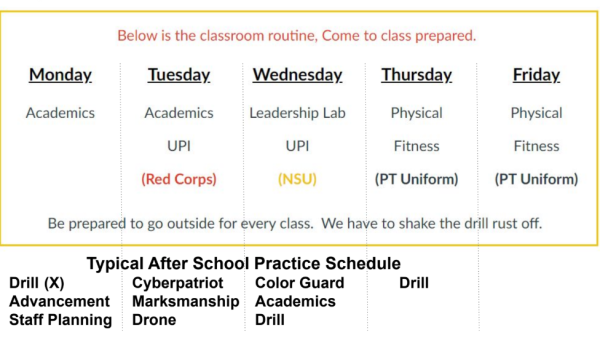
Another common misconception is that NJROTC has a tiring physical program. While fitness is a component, the curriculum is diverse. A typical week in the NJROTC program consists of lessons, student-driven instruction, and fitness. Monday and Tuesday are academic days where students will engage in topics such as Navy history, international affairs, and weapons. Wednesdays are Leadership Lab days, where lessons are student-led. Upperclassmen students can run the course, including new material and an activity such as marching and sword-use basics. Thursday and Friday are Physical Fitness days; “fitness days aren’t like regular P.E.,” sophomore Chase Sanwick comments, “we play fun games like warrior ball, capture the flag, and kickball. You don’t have to be the strongest to join—just willing to participate.” For students seeking more challenges, NJROTC also offers an afterschool program where students are able to participate and even compete in unique activities such as shooting, drones, and drills year-round. None of the activities are mandatory, yet Houser remarks that students are always there.
Myth 4: NJROTC is Only for Students Struggling Academically
Rather than NJROTC being a program for students who need help with academics, junior Oscar Cheng states, “the program attracts students who want structure and growth.” Students sometimes enroll in the program to build self-discipline or leadership skills, but they also maintain well-rounded, everyday personalities outside of the program.
Beyond the Classroom
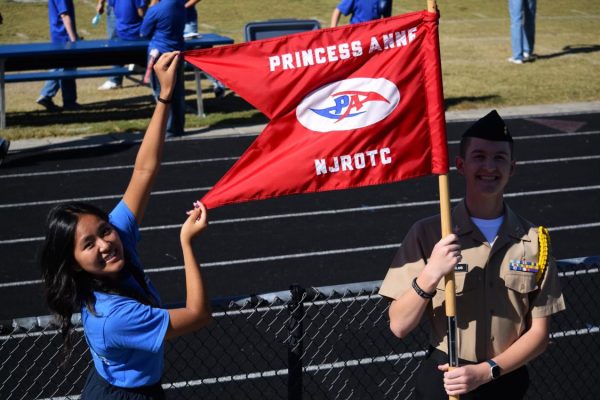
NJROTC isn’t confined to the walls of a classroom; the program opens the door to many experiences ranging from national competitions to social events. Cheng shares that seeing NJROTC’s National Brain Brawl team first place win in the 2022-2023 school year inspired him to join the program. With NJROTC’s mission and activity opportunities in mind, he enrolled in the program and later went on to qualify for Nationals with the Brain Brawl team in Florida. Cheng reflects, “that dedication paid off. It was a dream come true.”
Additionally, the NJROTC enjoys its annual military ball, typically hosted at the Virginia Beach Westin. This dance is described as a very fun time and is highly anticipated by both students and instructors alike. Sanwick also highlights their annual field trip to the Naval Academy in Maryland, allowing cadets to see military life and history firsthand.
Building Skills, Leadership, and Lifelong Bonds
At its core, NJROTC is designed to teach students the basics of citizenship and leadership. Oba explains that cadets are taught the core values are honor, courage, and commitment, while also highlighting that these concepts apply to real life. “NJROTC is the ideal program for individuals who want to focus on building themselves from the ground up,” he said.
Cadets often refer to their peers in NJROTC as family. Cheng says that not only has the program strengthened his skills socially, but he feels that he was introduced to a family-like environment. With the help of Houser, who he describes as an energetic and insightful mentor, he has also been given indispensable advice about life. Sophomore Olivia Holewinski agrees with this sentiment and adds “this unit is like a family.”
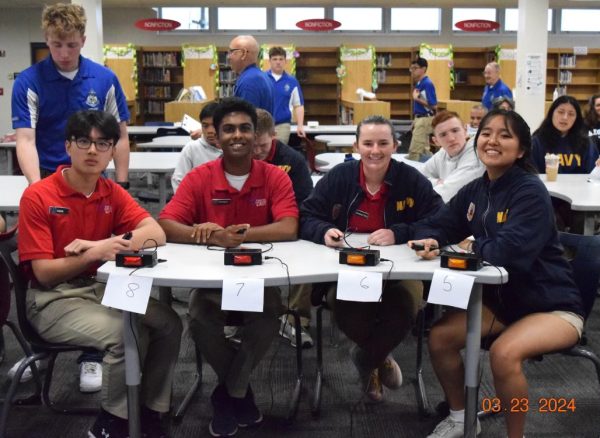
The program also offers various benefits and opportunities to build leadership techniques. Oba shares his goal of achieving a United States Naval Academy scholarship. His interest in NJROTC was piqued in middle school, where he learned that the program enables students to gain scholarships from military academies and have a higher rank in the military when they graduate in contrast to starting from the bottom. Cadets can apply for leadership positions such as commander of the unit to gain experience. Cheng shares that he achieved Petty Officer 1st Class in his first year and took on leadership roles in his second.
PAHS students are eligible to join NJROTC at any time during their high school years. Oba states that students who want to build themselves, gain leadership, and reach out of their comfort zones should consider applying to the program. Houser further encourages seniors who are unsure of what they will do when they graduate to take NJROTC so that mentors can help them develop their plans, whether it includes joining the military or not. “There is no incentive other than I want to help students.” Houser ensures that the decision to join the program is solely the student’s. For students like Cheng, the impact of the program is everlasting. “Reflecting on my journey, I’m proud of how far I’ve come and the impact NJROTC has had on my life,” said Cheng.



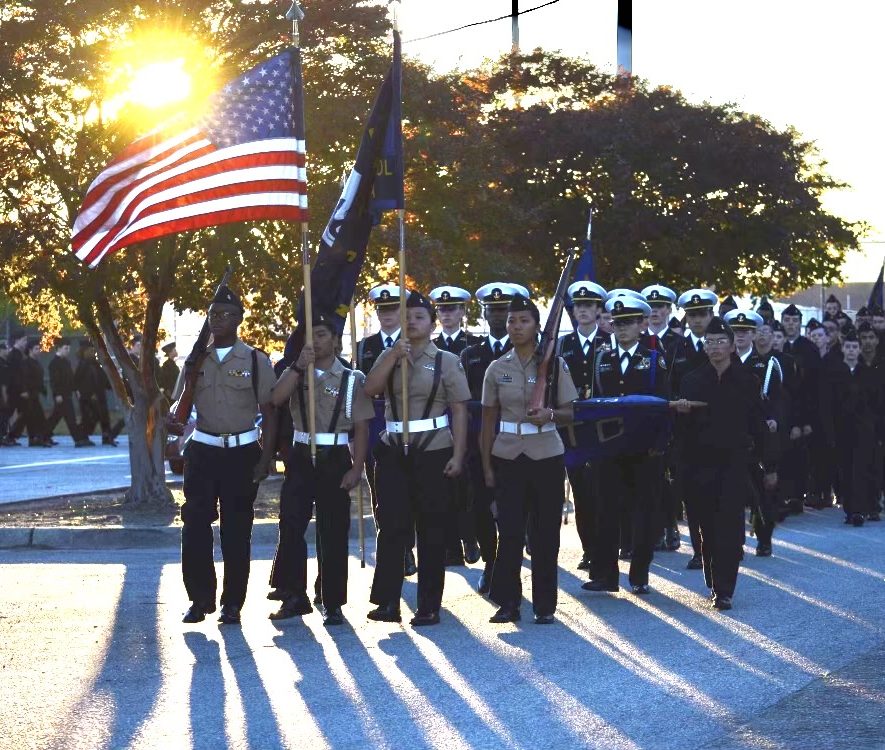

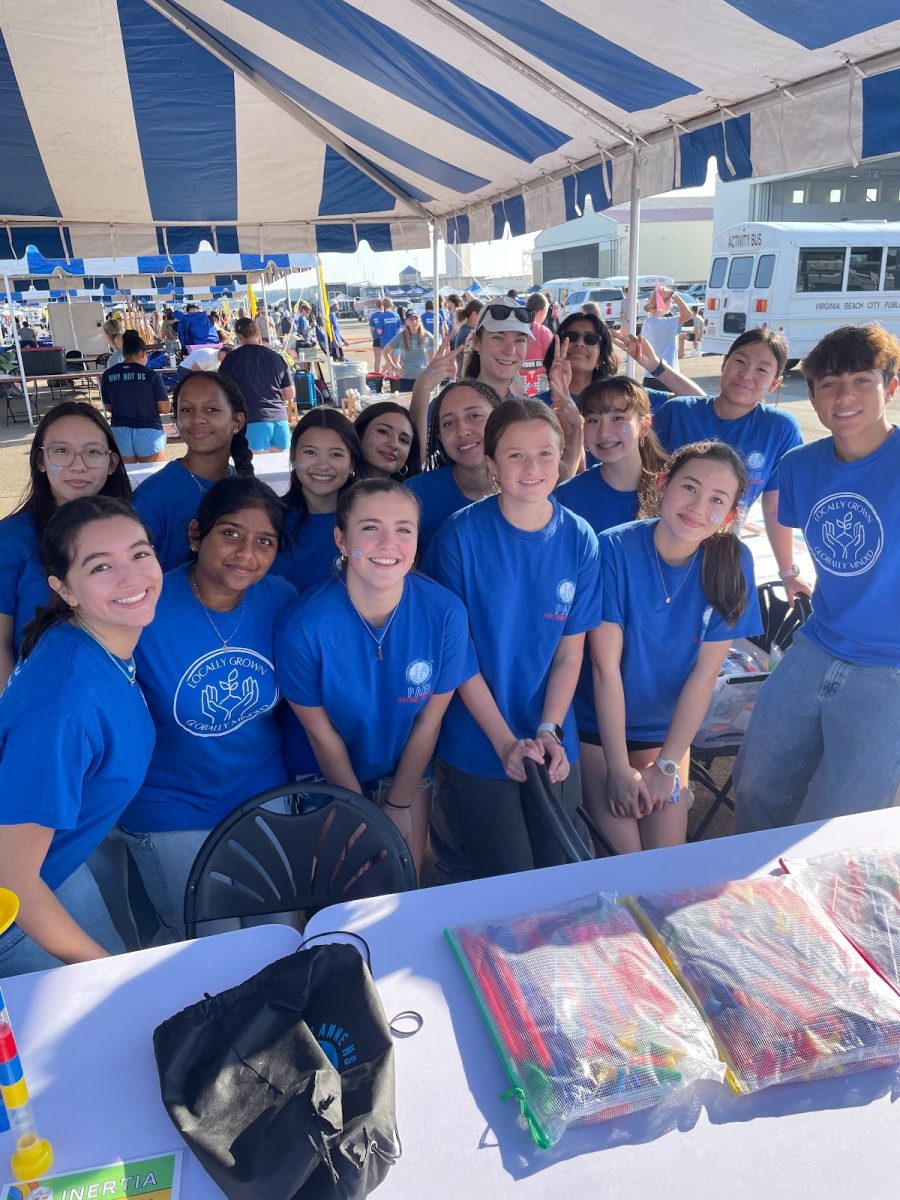


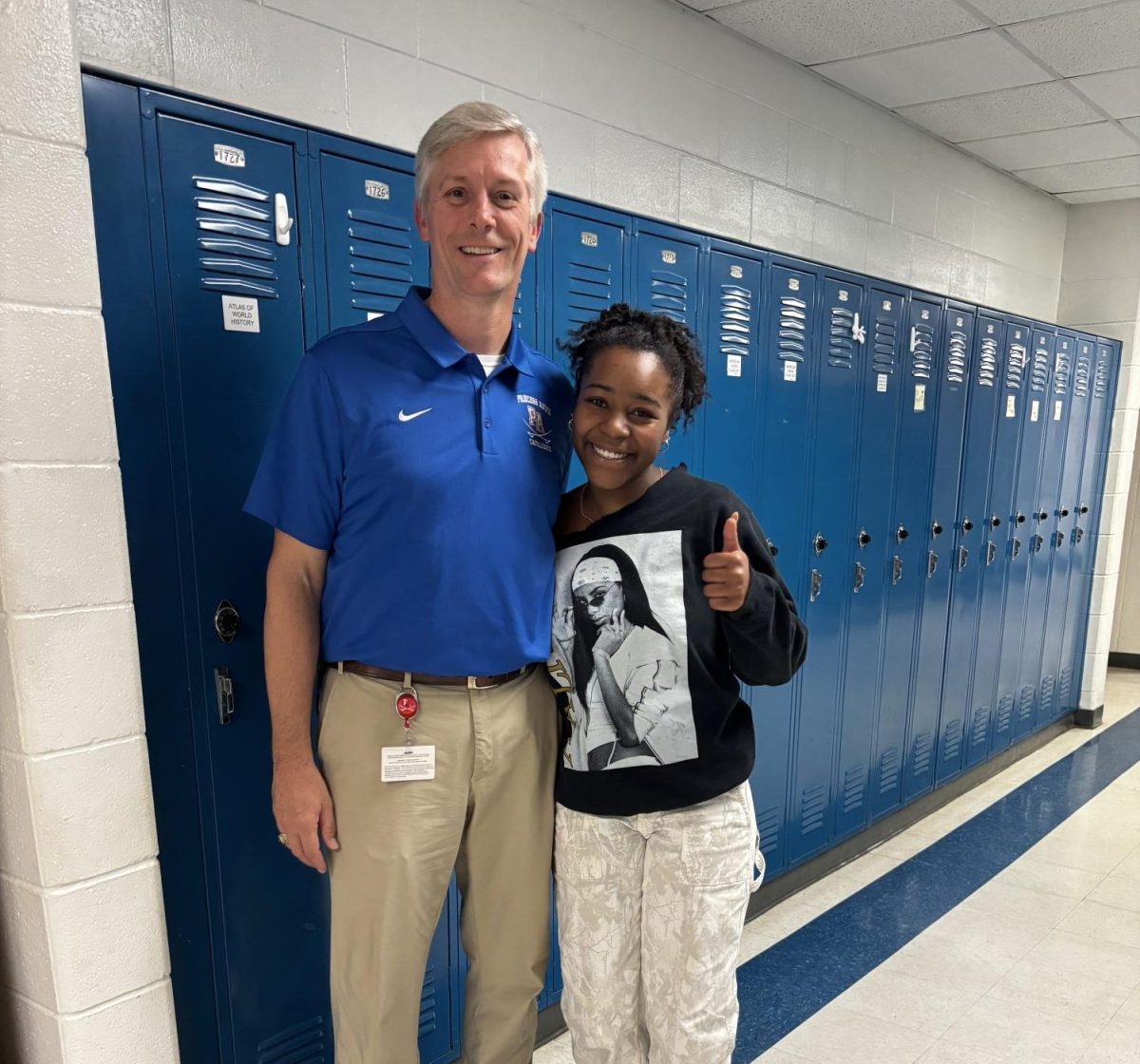


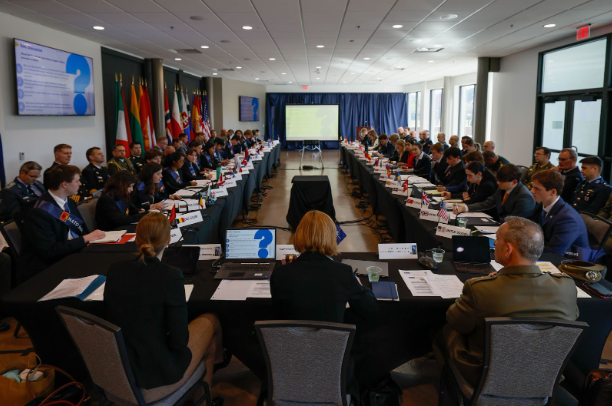
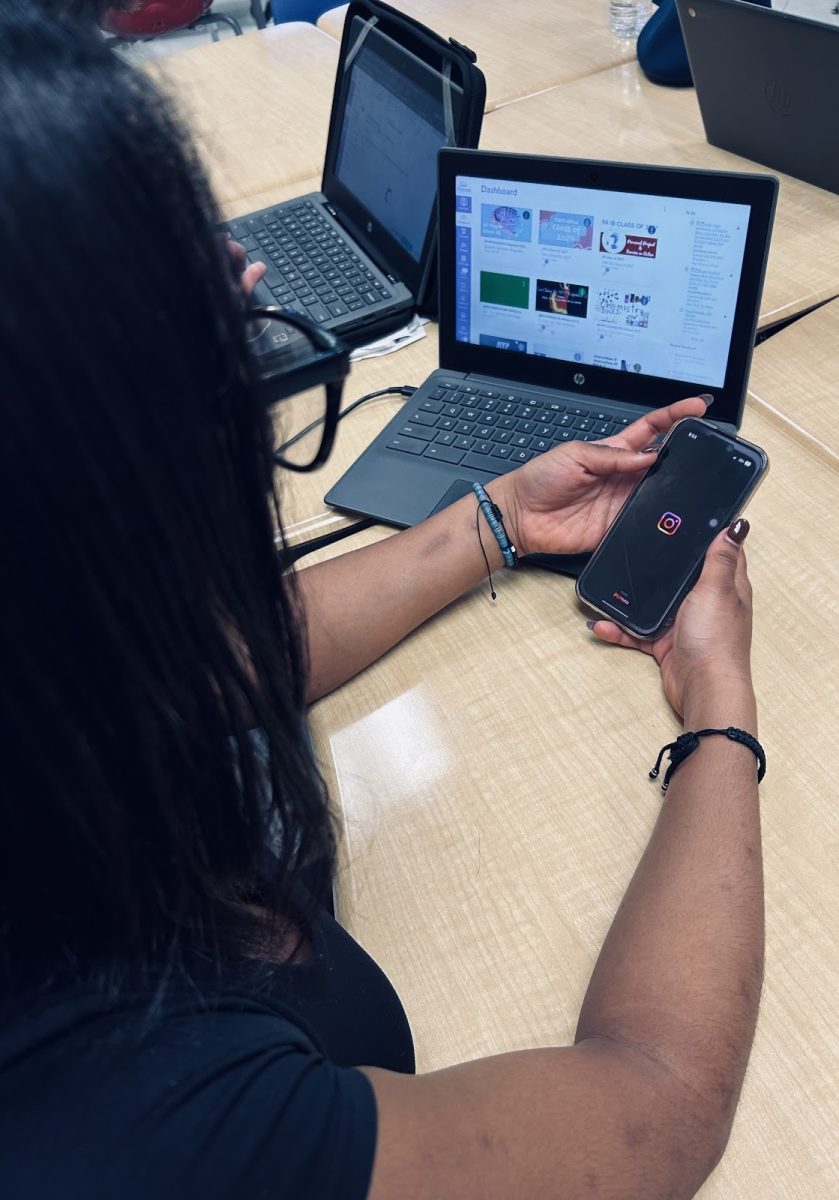


Gandhi Basnet • Dec 9, 2024 at 8:52 pm
Lovely.